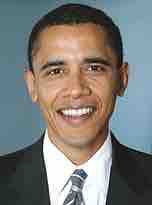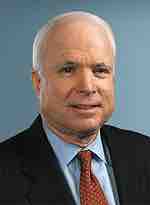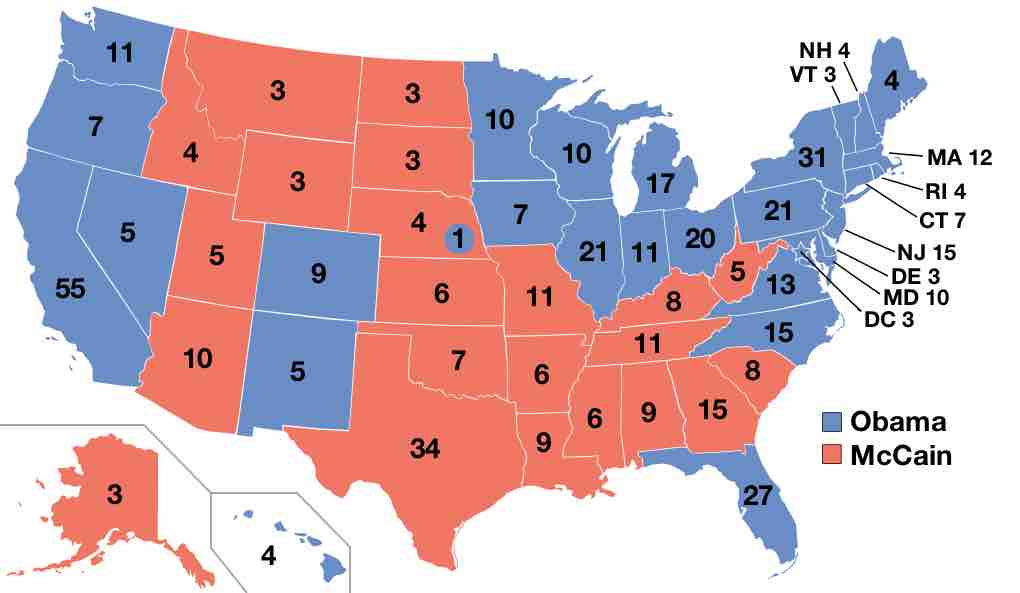Overview
The United States presidential election of 2008 was was held on Tuesday, November 4. Democrat Barack Obama, the then junior Senator from Illinois, defeated Republican John McCain, the senior Senator from Arizona. As the campaign progressed, both the War in Iraq and outgoing Republican President George W. Bush had become increasingly unpopular, and so the major-party candidates ran on a platform of change and reform. Domestic policy and the economy eventually emerged as the primary themes in the last few months of the campaign, following the onset of the worst recession since the 1930s.
Obama would go on to win a decisive victory over McCain in both the electoral and popular votes. Obama received the most votes for a presidential candidate in American history, winning the popular and electoral vote by the largest margin in 12 years. A Democrat had not won the popular vote by that large of a margin in nearly a half-century. The election of 2008 was the first U.S. presidential election in which an African American was elected, as well as the first in which an African American won the nomination of either major party.

2008 Democratic Party Presidential Candidate Barack Obama
Barack Obama
The Candidates
Born in Hawaii in 1961 to a Kenyan father and an American woman from Kansas, Barack Obama excelled at school, going on to attend Occidental College in Los Angeles, Columbia University, and finally Harvard Law School, where he became the first African-American president of the Harvard Law Review. As part of his education, he also spent time in Chicago working as a community organizer to help those displaced by the decline of heavy industry in the early 1980s. Obama first came to national attention when he delivered the keynote address at the 2004 Democratic National Convention while running for his first term in the U.S. Senate. Just a couple of years later, he was running for president himself, the first African-American nominee for the office from either major political party. Obama’s opponent in 2008 was John McCain, a Vietnam veteran and Republican senator from Arizona. McCain had a reputation of a “maverick” who had occasionally broken ranks with his party to support bipartisan initiatives.

2008 Republican Party Presidential Candidate John McCain
Senator John McCain from Arizona.
The Campaign
On August 28, 2008, Obama formally accepted the Democratic nomination for President. The television audiences for both McCain's and Obama's acceptance speeches broke records, according to Nielsen ratings.
McCain faced a number of challenges during the campaign. As the Republican nominee, he remained closely associated with the two disastrous foreign wars initiated under the Bush administration. His late recognition of the economic catastrophe on the eve of the election did not help matters and further damaged the Republican brand at the polls. Polls taken in the last few months of the presidential campaign showed the economy as the top concern for voters, with many news sources reporting that the economy was suffering its most serious downturn since the Great Depression. At age seventy-one, McCain also had to fight accusations that he was too old for the job, an impression made even more striking by his energetic young challenger. To minimize this weakness, McCain chose a young but relatively inexperienced running mate, Governor Sarah Palin of Alaska. This tactic backfired, however, when a number of poor performances in television interviews drew voter support away from Palin.
Senator Obama, too, was criticized for his lack of experience with foreign policy, a deficit he remedied by choosing experienced politician Joseph Biden as his running mate. Unlike his Republican opponent, however, Obama offered promises of “hope and change.” By sending out voter reminders on Twitter and connecting with supporters on Facebook, he was able to harness social media and take advantage of grassroots enthusiasm for his candidacy.
The unpopular War in Iraq was a key issue before the focus shifted to the economic crisis. John McCain supported the war while Barack Obama opposed it. McCain proposed that the U.S. could be in Iraq for as long as the next 50 to 100 years, and though he was referring to peacetime presence—like the United States maintained in Germany and Japan after World War II—his statement would prove costly. Obama used it as part of his strategy to tie McCain to the increasingly unpopular incumbent President George W. Bush. In ads and at campaign rallies, Obama pointed out that McCain had voted with Bush 90% of the time, and congressional voting records supported this for the years Bush was in office.
Election Day and Results
Election Day was held on November 4, 2008. A McCain victory quickly became improbable as Obama amassed early wins in his home state of Illinois, the Northeast, and the critical battleground state of Ohio. Obama won the entire Northeast by comfortable margins, and he won the Great Lakes states of Michigan, Wisconsin, and Minnesota by double digits. McCain held on to traditionally Republican states like North Dakota, South Dakota, Nebraska, Kansas, Oklahoma, Montana, Utah, Idaho, Wyoming, and his home state of Arizona.

2008 Electoral College
Presidential election results map. Blue denotes states/districts won by Obama/Biden, and Red denotes those won by McCain/Palin. Numbers indicate electoral votes allotted to the winner of each state. Obama won one electoral vote (from Nebraska's 2nd congressional district) of Nebraska's five.
Obama's youthful vigor drew independents and first-time voters, and he won 95% of the African American vote and 44% of the white vote. President-elect Obama appeared just before midnight Eastern Time on November 5 in Grant Park, Chicago, in front of a crowd of 250,000 people, to deliver his victory speech. Following Obama's speech, spontaneous street parties broke out in cities across the United States and even around the world, including in London, Berlin, Japan, Rio de Janeiro, Sydney, and Nairobi.